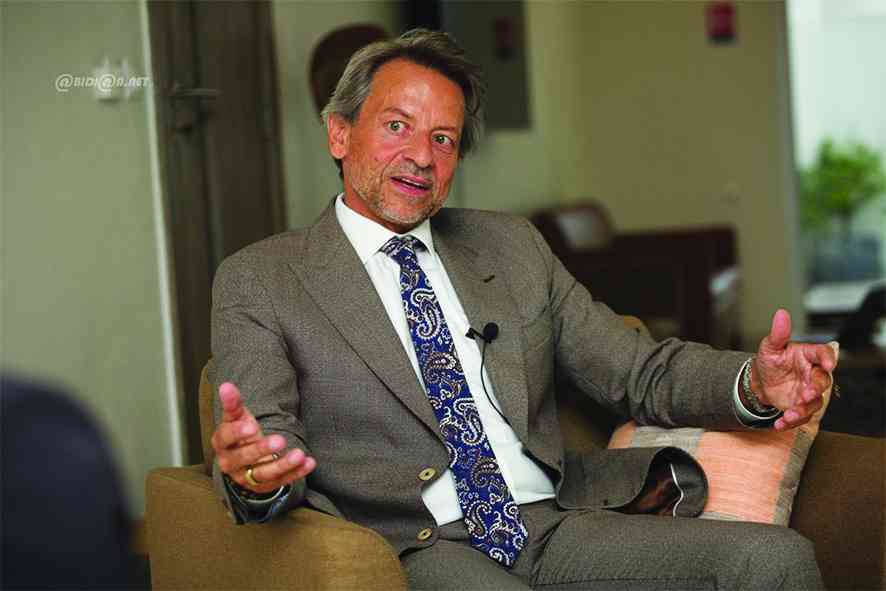
EUROPEAN Union ambassador to Zimbabwe Jobst von Kirchmann says local industries must take advantage of the vast natural resources to build and develop the country.
The diplomat made the remarks yesterday, during the ongoing Zimbabwe National Chamber of Commerce 2025 Annual Congress that kicked off on Wednesday in Victoria Falls. The conference ends tomorrow.
Zimbabwe is richly endowed with a diverse array of natural resources. Its vast mineral wealth includes around 40 distinct minerals, among them world-class reserves of platinum group metals, chrome, gold, diamonds, coal, lithium, nickel, copper, iron ore, tin, vanadium and asbestos.
Beyond minerals, Zimbabwe possesses significant renewable assets: fertile arable land, extensive forests, abundant surface and groundwater and rich wildlife, including national parks teeming with biodiversity.
“First of all, you know, you always want a good location, resources available, a growing export and a skilled labour force. A lot of these things are available in Zimbabwe. So why does the manufacturing sector remain low? So, the manufacturing sector, in my view, falls along with or has the same criteria as you need for any other business as well,” Kirchmann said.
“And that is like plenty. So, when you have a very nice plant, and it looks beautiful, and that’s your business idea, that plant is only growing if you put it in fertile soil. We all agree with that. If the soil is not good, the plant cannot grow.”
He said there was a need for a clear national business strategy.
“So, the government needs to be fully committed to letting businesses thrive,” Kirchmann added.
- CCC urged to push for dialogue over reforms
- A peep into Matenganyika’s artistic closets
- The Bioskop Short Film Competition is back
- Mangwe farmers benefit from agric projects
Keep Reading
“An investment in people, education, health, sufficient investment capital available on the market, an export-oriented industrialisation or service growth, strong institutions, a solid rule of law, regulatory clarity for predictability and a low level of corruption, and finally, a good infrastructure of roads, railways, electricity and water.”
He said this was the recipe for growth, worldwide, in economies that took off, where the manufacturing sector went from 5-6% to 25% economic contribution.
The Confederation of Zimbabwe Industries last year revealed that Zimbabwe’s manufacturing sector contribution to gross domestic product declined to 9%, from a peak of 23% between 1980 and 1989.
“There is no miracle, so that is known,” Kirchmann said.
He called on the private sector to push the government to pay its more than US$21 billion arrears to unlock fresh investment.
United Nations resident and humanitarian co-ordinator to Zimbabwe, Edward Kallon, said the manufacturing firms in Zimbabwe should build sustainable industries to help the country grow and develop.
“The transition promotes sustainable practices that can facilitate the economy’s transformation, particularly in the areas that we are looking at in our research. One is green energy, sustainable agriculture, and also resilient infrastructure that is becoming very, very important and sustainable to our development,” he said.
“These are areas of technological exploitation that indeed turbocharge manufacturing in Zimbabwe. Zimbabwe’s journey towards manufacturing in the dynamic and global landscape involves careful alignment with policymakers, innovative strategies to counteract local and economic challenges, and integration into regional and global trade frameworks.”
However, he noted efforts in improving manufacturing in terms of food systems, renewable energy and digitalisation.
Competition Tariff Commission, restrictive practices division deputy director Cecilia Mashava urged authorities to continue using tariffs as a way of protecting the local industries against smuggling.










